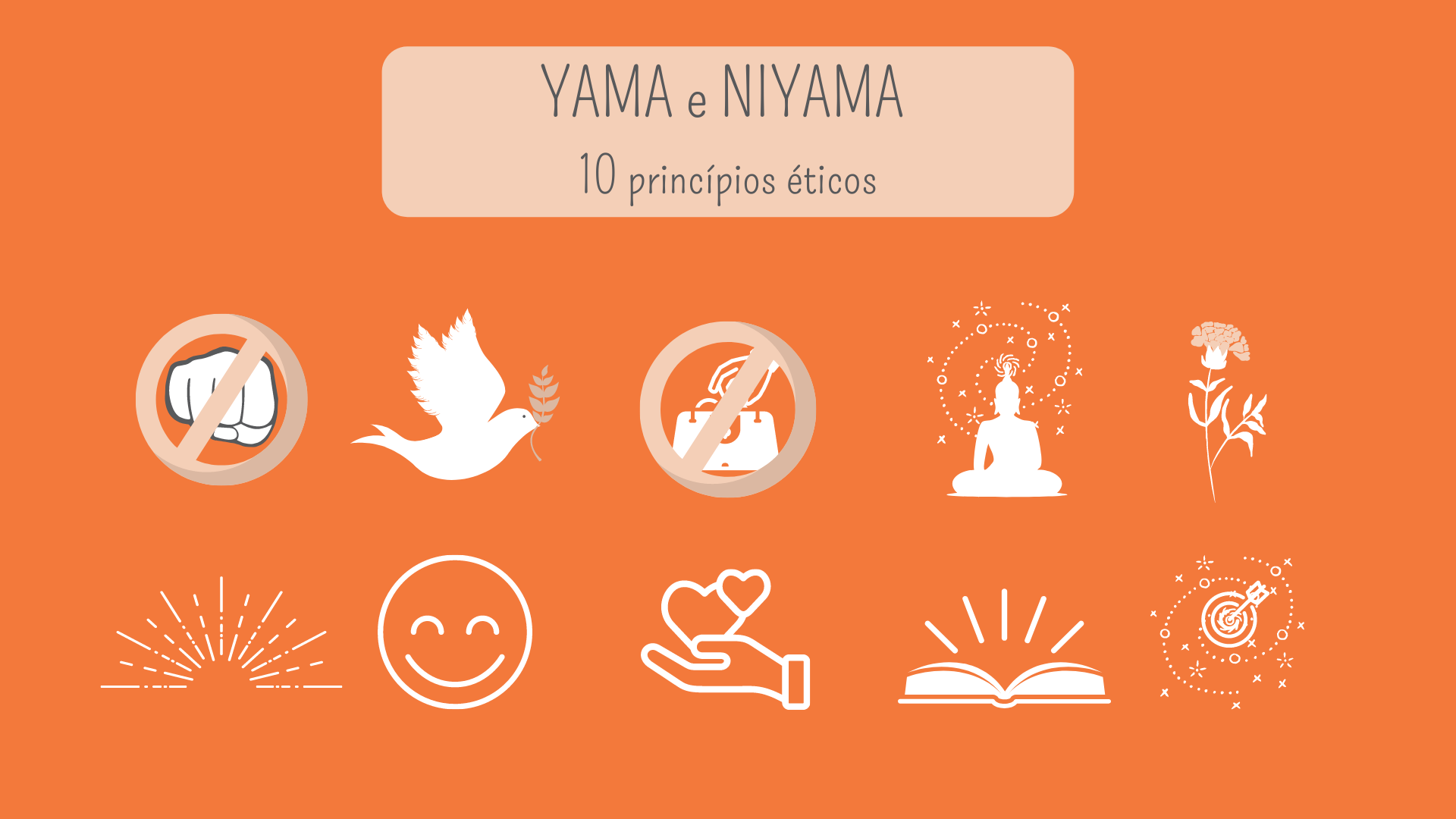What is Yama and Niyama? Know the principles of Yoga?

Table of contents
Much is said about the philosophy of yoga. They say that the asanas (postures) are not just the main thing, and that through breathing and postures there is a culture and knowledge that expands into the consciousness of the human mind. But do you know what the Yamas and Niyamas in Yoga ?
See_also: Kundalini - What it is and how to awaken its energyYamas are considered a kind of ethical code in Yoga and are composed of five basic principles: Ahimsa, Satya, Asteya, Brahmacharya, Aparigraha. Thus, we can classify the yamas as moral and ethical conduct.
On the other hand Niyamas represent a moral basis in Yoga, a kind of disciplinary conduct. They are composed of five: Saucha, Santocha, Tapas, Svadhyaya, and Ishivara Pranidhana.
Learn, below, the meaning of each Yama and Niyama!
See_also: To Dream of Dirty Water FloodingThe 5 Yamas
- Ahimsa: Here the practitioner must have respect for his life, his body, his thoughts, and also with other people. Not to act with violence in thought and also physically.
- Satya: It is to follow the search for truth and to occupy our thoughts with the truth and what really matters.
- Asteya It means not to steal, not to steal what others have, but also not to be envious of what others have achieved. Therefore, it also teaches one of the principles of yoga, which is detachment. We can live with less and better.
- Brahmacharya: It is not necessary to become celibate, but to know how to control your impulses. Examples: overeating and having several partners. You lack energy to do another activity.
- Aparigraha: here is to live with simplicity. With less it is possible to achieve happiness. Also, to have less feelings of possession, jealousy, and to go in search of spiritual evolution.
The 5 Niyamas
- Saucha: The yogis discovered that the external and internal impurities of the body negatively affect our spirit, so we must cultivate saucha. For example, not cultivating anger is saucha, seeking a healthier diet is saucha. The practices of asana, pranayama and meditation cleanse and purify the body and mind and strengthen your ability to maintain yourself in a purestate of being.
- Santocha: It is to serenely accept facts and events and not fight against them. It is to try to seek peace regardless of the situations and not act like a madman who has no control over his thoughts.
- Tapas: Effort is the meaning of tapas. To act with effort in our activities. It is not to give up in the face of difficulties. Tapas transforms and purifies us as well as gives us awareness and control over our bad behavior and unconscious impulses. Tapas builds willpower and personal strength to help us be more dedicated to the practice of yoga.
- Svadhyaya: Self-knowledge (the study of oneself) is the ability to see our divine nature through the contemplation of our life lessons and the truths revealed through the meditation of sages and prophets. Life provides us with endless opportunities to learn about ourselves. Our faults and weaknesses give us the opportunity to grow, and our mistakes allow us to learn.
- Ishivara Pranidhana: (devotion) is the dedication, devotion, and surrender of the fruits of a practice to a higher power. This Niyama fuses two common aspects of yoga: devotion to something greater than ourselves and the altruistic karma action of yoga. Patanjali tells us that to reach the goal of yoga we must separate ourselves from our egocentric nature and let go of our constant identification with ourselves.
Now that you know a little more about the philosophy of Yoga, how about starting to put it into practice little by little? Remember that a life of Yoga is achieved with patience, self-knowledge and acceptance, so enjoy this journey of connection and continue learning daily with the Yamas and Niyamas!

